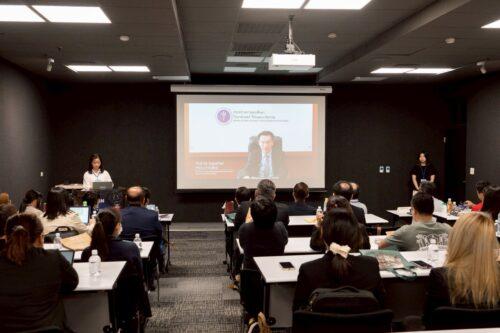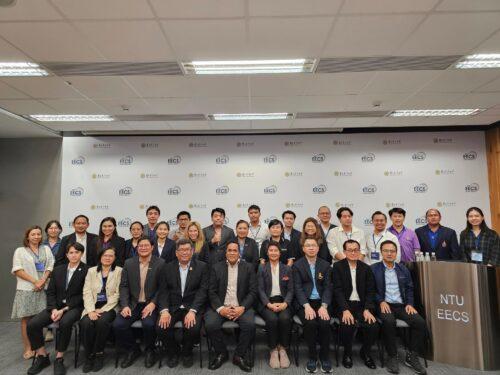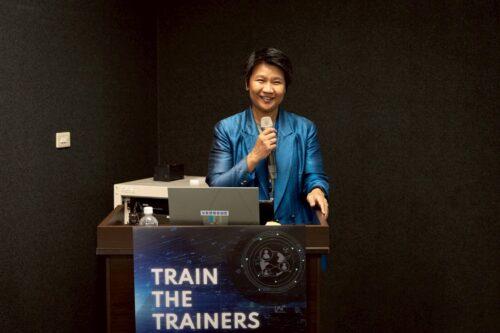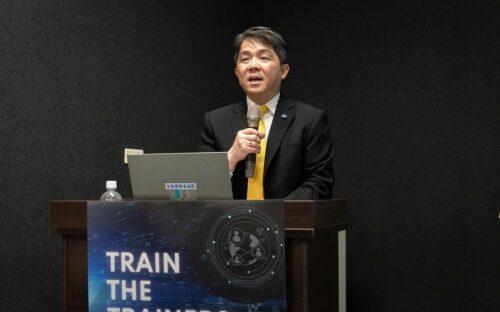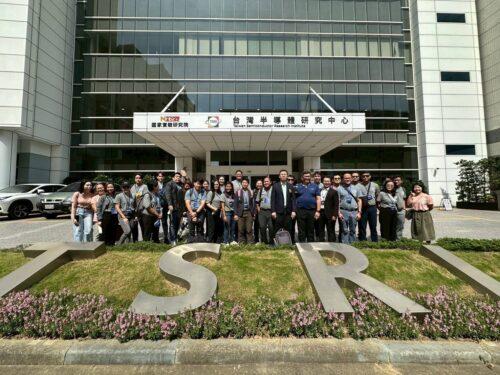On September 14, 2025, at National Taiwan University (NTU), Taipei, Taiwan, Prof. Dr. Supachai Pathumnakul, Permanent Secretary of the Ministry of Higher Education, Science, Research and Innovation (MHESI), together with Mr. Narong Boonsathianwong, Executive Director of the Thailand Trade and Economic Office (TTEO), presided over the opening ceremony of the Train the Trainers Program 2025: Next-Generation Semiconductor Technologies.
The program, held from September 14–24, 2025, is a collaboration between MHESI, Khon Kaen University (KKU), and NTU. Twenty-five participants from 18 government agencies and private organizations in Thailand were carefully selected to receive advanced training in next-generation semiconductor technologies. Upon completion, they will serve as “Core Trainers,” transferring their expertise and skills to Thailand’s education system and industrial sector.
The program has been actively supported by Dr. Punpermsak Aroony, Assistant Permanent Secretary of MHESI; Mr. Narong Boonsathianwong, Executive Director of the Thailand Trade and Economic Office, Ministry of Foreign Affairs; Assoc. Prof. Charnchai Panthongviriyakul, M.D., President of Khon Kaen University; and Assoc. Prof. Dr. Ratchaphon Santivarakorn, Dean of the Faculty of Engineering, KKU. The initiative is led by Assoc. Prof. Dr. Jeeranuch Sengiamsak, Assistant to the President for Research and Innovation at KKU and Chair of the Semiconductor Curriculum Development Committee, who serves as the program head and has overseen the training throughout.
During the 10-day training, participants attended academic lectures delivered by distinguished NTU professors on topics such as the history and future of chip design and manufacturing, advances in GaN power devices and Si photonics for AI servers, semiconductor analog IC design, VLSI signal processing, and computer vision. Participants also visited leading research institutes and industries in Taiwan, including the Taiwan Semiconductor Research Institute (TSRI), the TSMC Museum, and the NEMS Research Center, to gain hands-on learning experiences.
Prof. Dr. Supachai Pathumnakul emphasized in his opening remarks that developing a skilled semiconductor workforce is a national priority for advancing Thailand’s economy. He noted that the program not only elevates the expertise of Thai personnel but also strengthens collaboration between Thai and Taiwanese researchers, laying the foundation for curriculum development, research partnerships, and global industrial linkages.
“The 25 participants will become a crucial driving force in building Thailand’s semiconductor ecosystem, generating competitive research and innovation, and enhancing the country’s capabilities within the global supply chain,” Prof. Dr. Supachai stated.
The program is expected to generate significant outcomes as participants return to Thailand as key contributors and core trainers. They will play essential roles in improving engineering and technology curricula, fostering international research collaborations, providing Thai students with internship and project opportunities in industry, and ultimately strengthening Thailand’s competitiveness in the global semiconductor sector.
